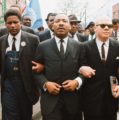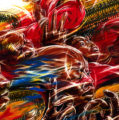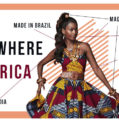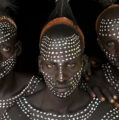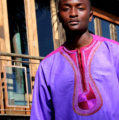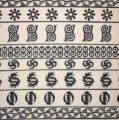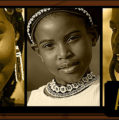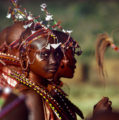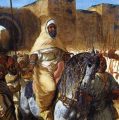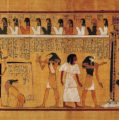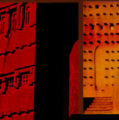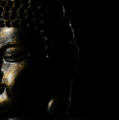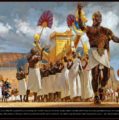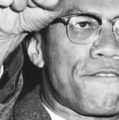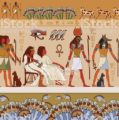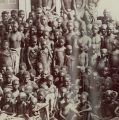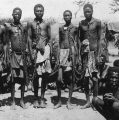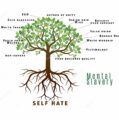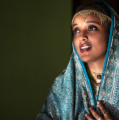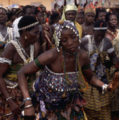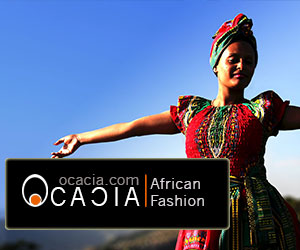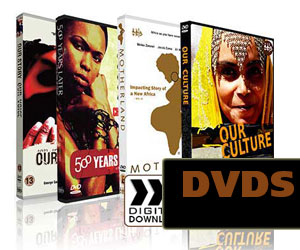


THE MOST IMPORTANT CEREMONY IN AFRICA
See also | African Culture & Rites of Passage
Ethiopia | Kenya | Ghana | Gambia | Sudan | Senegal | South Africa | Zimbabwe | African-American | Caribbean | Mozambique | Somalia
Marriage in African culture, from North to South, East to West is hands-down one of the most significant rites of passage. It is the most celebrated ceremony in all African cultures. African weddings are a spiritual and social family affair and involve the combining of two lives, two families, and even two communities! There is no great civilization that has ever existed that abstained from marriage as one of its core fundamentals of nation building.
A man without a wife is like a vase without flowers– African Proverb
Marriage is sacred in Africa and beyond, because it solidifies relationship that enrich communities and nations by bring forth new life and new hope. African cultures celebrate the coming of the rains, the first harvest and the birth of a child. Marriage is that cultural process which ushers in new life. It is a cherished and most celebrated rite of passage since the dawn of African civilization. But marriage is not a human right: Human rights don’t need licenses or certificates. Marriage is instead a privilege afforded by communities, between man and woman for those who meet the criteria.
Don’t tear down a fence until you know why it was put up–African Proverb
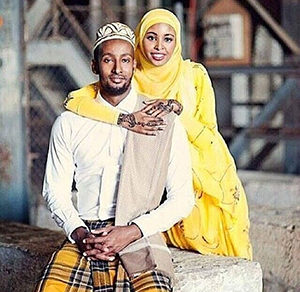
African Muslim Couple
Marriage is the only known incubator for the raising of balanced socially functional children. It is a civilized union of man and woman. The ideal setup for a child to be raised into full functionality in the African context as a contributor to civilization. It is the institutionalization of complementary relationship between male and female energies, enshrining in the child sentiments and values from both sexes. This is the formula which is secured with marriage.
Extended family systems sits in this equation by sharing responsibilities and enshrining balance. Even if a woman is unable to contribute by having her own biological children her role as a mother is expressed in a communal set up. And hence why the Pan-African proverb of it takes a village to raise a child. Parenting is communal, and the harmony of male and female energies are critical in enshrining balanced humans.
It takes a village to raise a child– African Proverb
In all the communities the bride plays a very special role and is treated with respect because she is a link between the unborn and the ancestors. A bride might eventually bear a very powerful child. Women are mothers of civilization which earns them a high status in society, thus protecting women and children is a biological human instinct.
And if a people cannot get the man and the woman into equitable agreement and commitment– then what about the nation, and the continent? In a good marriage means partners compliments each other, and makes both parties better. Marriage is a journey through life which enhances and enriching entire communities. Marriage promotes sharing, tolerance, consideration, empathy, selflessness, and other virtues. Lack of marriage is the death of a nation and a people. Communities that fail to recognize marriage become decadent and self-destructive with a range of social, economic and health issues (HIV, etc).
Anybody can make a baby, but a father helps to raise his children. There is another word for fatherhood. It’s called responsibility– Malcolm X
DEFINING MARRIAGE
Marriage should transform both individuals into better people than they could otherwise been if not united.
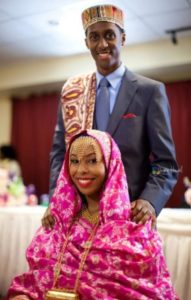
Somali Wedding
When you look around the history of human civilization and see the tradition of marriage that stands independent of time, race, geography and culture. It means it is a aspect of civilization, humanity and human culture. Marriage historically has be used in political unions between nations, between different ethnic groups to secure peace, trade and development. And marriage is one thing that unites African culture, although two marriages will never be similar. You can marry in a church, a mosque, in the bush, by a priest, an Imam, minister of justice, underwater, in a tree, the core thing is marriage is a contract of commitment with rules and regulations that represent the person’s culture. It is a communal relationship, a rite of passage which bonds two people and enshrines obligations and values. And even while people may get divorced they are guidelines and ethics in every culture for governing all aspects of married life. Marriage is dignity and a true sign of commitment. It defines our humanity and contributes to making us more human. It is exclusively between naturally God man members of the opposite sex.
STEPS
There are many steps that take place before marriage starting at a very young age where training takes place in how to be a suitable partner.
Girls will many times go to schools where women teach them what is involved in marriage, and in some ethnic groups even learn secret codes and languages so that they can communicate with other married women. In the Wolof people there is even a time where the elders of the village gather with the bride and give advice and gifts. Weddings can be very elaborate, involving feasting and dancing for days within a community, they can be very simple, or they can even be performed in huge marriage ceremonies involving many different couples.
In the Diaspora, especially the UK, marriage is compounded by a the social culture of the “baby- mama” syndrome. Which according to some experts is a manifestation of immaturity and lack of moral responsibility. Marriage squeeze refers to the demographic imbalance in which the number of potential brides does not approximately equal the number of potential grooms. With African men being “deleted” from the marriage pool via: inter-racial choice, prisons, sexual-orientation, etc it is having profound consequences on African-Diaspora finding suitable partners, especially if they are educated and looking for men from that social class.
GOOD AFRICAN MARRIAGE
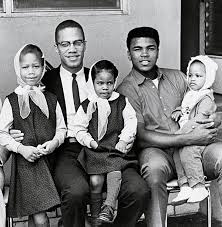
Malcolm X and Muhammad Ali
A good relationship is not only defined by the high points, it is also defined by how people handle the low points. It is how they survive conflict and struggle in an equitable progressive way. Two people are married and they boast “We never had a disagreement, we never had an argument”— Then that marriage is untested. It is the marriage or relationship that had the weight of challenges bearing down upon them and resolved them through mutual growth —that is a real marriage. It is like a body that has an immune system for future challenges.
In the Western world because of feminism a good marriage is constructed differently from the African paradigm. Asking your wife to bring you a cup of tea while you relax and watch the game is a “no-no.” But why would this be a problem in an equitable relationship, where at another stage when the wife wants to stay in bed the husband reciprocates. So a relationship is a single unit made up of two parts which complement, support, reinforce, and give pleasure to one another. All of this is wrapped in the concept of justice— what is fair to all, and what is righteous to all.
CHECK THE FAMILY
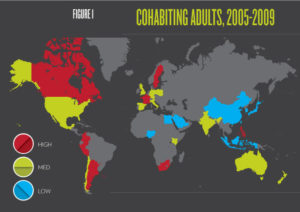
Low Marriage by country
In the olden days you would always hear people say “He or she is a good catch as they come from a good family”. And that was like your security. 1. It meant that when someone is raised by a good family they may have very good family values which they bring with them to their new set up. 2. When something goes wrong in your marriage you know that they have family oriented values and will be supportive and unite to protect the new family. 3. If something happens to you or your partner your children would still be in good company.
At all cost, avoid marrying people from bad families which show no signs of unity or morality. If you see family and all the daughters are single parents with children running wild, and all the sons are sleeping around and unemployed and drunk. Do not expect the person you marry to hold values above those of their family background. Some families may originally have no education but they may have value for education, hard work, and family values and you see this, others just do not care. Bad families create bad families.
NOT WORKING
Modern marriages struggle, especially among oppressed groups. And it is because people get married because of some mysterious feeling called love without giving two seconds to think about the practicality and purpose of a marriage. And in its coldest definition it is to continue the species successfully! To give those children born from the marriage a successful future. Now to do this both parties need to share certain values and be prepared to sacrifice to accomplish these things. But if one partners wants to work hard and save for a house and the other person wants to be in the beauty salon every week or at the bar drinking then Nairobi, we clearly have a problem.
Relationships (personal or Pan-African, informal or formal) are the same. You are in some sort of relationship and you struggling to make it work. And you are confused what can I do to make it work. Sometimes the obvious answer is the simplest— nothing! You need a relationship that takes you to the moon, they offering you a pair of slippers. You are on level 22 they at level 0 with no signs of moving. You are African conscious they are a colonial mental slave–how do you expect it to work? You not compatible. It is not a case of good person v bad person– you speaking two different languages, at different development stages, while having different goals.
TRUST
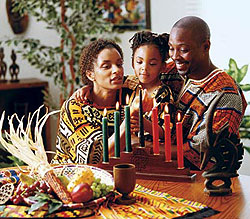
African Family @ Kwanzaa
Trust is everything and so much more than being sexuality faithful. Without it you might as well call it a day. Can you imagine being in a relationship where you give up your career to help put the other person through University so you both and your children can have a better life? And then they leave you. We heard stories like this before. Because in a relationship you going to have to really sacrifice (and not always in the same way) to make a better life in the long term. We live in a world where a relationship means nothing against someone’s short-term individuality, or perceived “happiness” or “sexuality.” “Its not working, I am leaving”. So everyone is holding back and watching their own back to minimize the damage because of lack of trust. And the hardest thing about trust is it requires both parties to do it all at once.
THE SMALLEST PAN-AFRICAN ELEMENT
We cannot even begin to discuss Pan-Africanism outside of the context of marriage because the smallest element of Pan-Africanism is the African family unit. An the legal and moral fabric of African family unity is the marriage. Accountability and stability within the family requires understanding, trust, tolerance, balance, and justice, all the ingredient for Pan-Africanism on a global level.

Henna art in an African wedding
Failure of the home speaks to the health of the broader people block. It is impossible to discuss social development and reconstruction of African people and not include the issue of marriage.
The Diaspora community has the lowest marriage rates of any ethnic group, a direct legacy of the African Holocaust. Because during the Maafa the first African institution that was destroyed was marriage. During Apartheid again the male-female relationship was placed under duress due to forced settlement and seasonal mine work which took the men far from their homestead. These isolated men then sought refuge in casual relationships with prostitutes ultimately leading to a health crisis.
What nation in history has achieved greatness that did not practice marriage? Marriage was central in Aksum, Kemet, Songhai, Zulu Kingdom, every known African civilization. India, China, Europe, Central America, Japan, all have strong traditions of marriage as backbones of nation building and peoplehood. Marriage has been a political stabilizer in the growth of every major empire, it was even used to broker unity between belligerents in Europe, Africa and Asia. Marriage between clans and nations has been a way of securing peace and trade. The entire history of political power in every nation was linked to marriage. Pan-Africanism and Marriage are interlinked because it is the most central and common African tradition, sacred to to all African people on the continent. It is therefore the building block of nationhood and our first form of unity.
SLAVERY AND MARRIAGE
Why Does the slave ever love? Why allow the tendrils of the heart to twine around objects which may at any moment be wrenched away by the hands of violence?–Harriet Jacobs
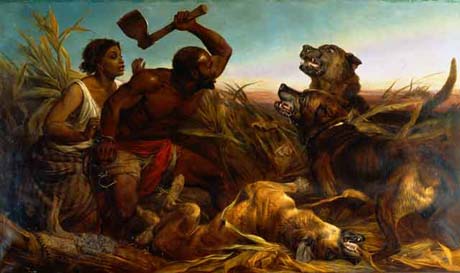
The Hunted Slave
During the African Holocaust of enslavement marriage was pointless if you were owned by the slave master. A person could be sold off at any instant. Everything is temporary — commitment is void when someone owns you. And we must, regardless of our martial status, be bold enough to see the errors that are out growths of enslavement. The destruction of people systems, the death of things that define our humanity. The temporariness of the enslaved reality meant also commitment was also fleeting. Long term arrangements in areas of marriage and parenting were nonexistent. And today the habits of enslaved people still run our relationships with each other. So a man can get a woman pregnant and simply abandon his responsibilities, this is slave culture. A woman feels no dishonor in having multiply children and no wedding ring. This is again only because we are a people void of culture.
STATISTICS & BLACK PEOPLE
The Black family has crumbled more in the last 30 years than it did in the entire 14 decades since slavery –Dr. Julia Har, Psychologist
They said it take a village to raise a child, but what happens when our villages are ghettos and our children are young mothers, and unemployable missing fathers? The “village” becomes modulated by the state and MTV Base.
During the African Holocaust of enslavement marriage was pointless if you were owned by the slave master A person could be sold off at any instant. Everything is temporary — commitment is pointless when someone owns you. And we must regardless of our martial status be bold enough to see the errors which are out growths of enslavement. The destruction of people systems, the death of things that define our humanity. The temporariness of the enslaved reality meant also commitment was also fleeting. long term arrangements in areas of marriage and parenting were nonexistent. And today the habits of enslaved people still run our relationships with each other.
The poverty rate among black married couples has been in single digits in every year since 1994, despite the high poverty rate among blacks (22%). Thomas Sowell 1)https://www.youtube.com/watch?v=atqB_7bzNFc
Not only are African Americans the least likely to marry, they are also the most likely to divorce. According to a study by the Pew Research Center. African-American children are significantly less likely than other children to be living with two married parents. (70 percent of African-American children are born to unmarried parents). In 2006, 35 percent of African-American children were living with two parents, compared with 84 percent of Asian children, 76 percent of non-Hispanic White children, and 66 percent of Hispanic children. – Child Trends DataBank, 2007 The Trend in the UK is even more dire with inter-racial marriages dominating over same-race marriages (see external link). African-American marriage rate seems to be on the upswing–from 46.1 percent in 1996 to 47.9 percent in 2001–after a 40-year downward spiral. The bad news is that the number of African married couples is only half the number of married Whites, and the situation is getting worse. In 1963, more than 70 percent of all African-American families were headed by married couples. In 2002 that number was 48 percent. (1). Travelling to South Africa only a third of children are living with both of their biological parents, according to a new report.. The report, The First Steps to Healing the South African Family, shows that 40% of children live only with their mothers, 3% live only with their father, and 23% live with neither of their biological parents. Some 8% of children live in ‘skip generation households‘ with their grandparents or great aunts and uncles.
HEALTH & SEXUAL DISEASES
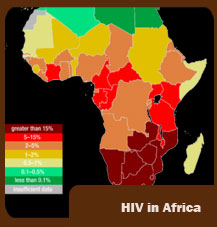
HIV in Africa
It is impossible to separate bad education and lack of proper marriage relations to sexual health issues. The rate of gonorrhea among African-Americans is nineteen times that of whites, and African-Americans are over eight times more likely to have syphilis than White-Americans. So-called “Sub-Saharan Africa” is home to just over 10% of the world’s population but more than 60% of all people infected with HIV. Why Africa? factors include: poverty, economic disparity, social instability, gender inequality, sexual violence, other sexually transmitted infections (which facilitate HIV transmission), lack of male circumcision, high mobility, rapid urbanization and modernization, and ineffective leadership during critical periods in the epidemic’s spread.
A 2003 study states that HIV and AIDS are less prevalent in Muslim populations and speculates that this may be due to the effect of several Islamic tenets, such as the avoidance of extramarital affairs and the “benefits arising from circumcision”
More than half of all Black children live in single-parent households, a number that has doubled — doubled — since we were children…Children who grow up without a father are five times more likely to live in poverty and commit crime; nine times more likely to drop out of schools and 20 times more likely to end up in prison—Obama
THE DILEMMA OF MODERN MARRIAGE
Malcolm was the greatest thing in my life and he taught me what every female ought to learn: to live and to love as a woman, to be true to myself and my responsibilities as a mother. And to use my spiritual, material, and intellectual capacities to help build a better human society.– Betty Shabazz (on being Married to Malcolm)
In the olden days two people meet twice and got married on the third meeting — and these marriages lasted a lifetime. Today couples date for 3 years and get divorced 6 months after finally getting married. What has changed?
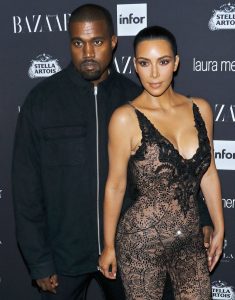
The New Standard
Modern societies put demands on African people that were not there historically. Women are expected to do everything their ancestors did (cook and clean and raise children) as well as everything Hollywood women do (look like Beyonce and be hyper-sexualized like Karrine Steffans). The economic balance has also changed meaning that women oftentimes earn more than men
These factors, combined with the adoption of western philosophy in how to handle them has resulted in imbalance.
Because of the over sexualization and promiscuous nature of societies people are becoming less tolerant, and at the first sign of a flaw they get out of the marriage. The family structures that make people sit down under peer review is vanishing and the taboos of shame and dignity are also evaporating so a man or a woman can conduct themselves immorally without worry of the society’s shame. In traditional African societies any abuse (against a woman for example) would be discussed with the community elders. Disputes which once could easily fixed by intercession, are now reasons for irreconcilable squabbles.
Understanding and accommodating difference and growth are critical to sustaining marriages. It will never be about 100% equality but more 100% harmony. Respect is absolutely critical, and honesty is the heart of that respect. And there is a myth that these guidelines only apply to monogamous relationships—not so. In any marriage set up, plural or otherwise, honesty is still the key. If a man is married to two women he must be equitable and honest just as if it was monogamous. Having another wife is not cheating, it is only an act of dishonesty which violates the marriage contract.
Many factors, esp. the destruction of family, and family values due to economic pressures of urban development contribute to the demise of an unbalanced marriage. So already even if the marriage is in good spirit, it struggles. The solution must be holistic, and balanced. An evolution of how we see gender roles that will fit into modernity and the challenges of that modernity is key. Balance also means finding a balance between the necessity and urgency of marriage vs. the consequences of forced marriage.
A GOOD PARTNER & LOVE
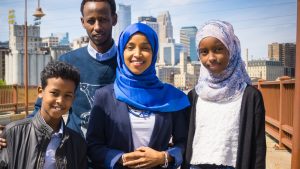
Somali family
Love is one of the most nebulous and abused terms ever used. What does it really mean? Because to love someone means to “love” some aspect of that person’s personality. So if you love someone because they are good-looking, cool or popular is that the love we are speaking about? What about loving someone because in honeymoon period “they make you laugh“? And theses are the question people need to ask. Because if love is rooted in these things how is it going to last? In addition is love enough? How will the relationship fear under the pressures of the modern world? Will the fact that, that person makes you laugh help when the bills show up on the table? Would true love not be rooted in something much deeper, like a person’s integrity, their humanity, their African consciousness?
So love can be a distraction and cause incompatible people to be together. If you are hard-working and driven, and marry someone who wants to watch soaps on TV all day; it does not matter how pretty they are, because ultimately that difference will cause resentment and ultimately the marriage will break-down. And whiles some want to be politically correct, people also need to consider their partners educational background–especially women. It is very unrealistic for an educated woman to seek out a man with no-education. So there should be no taboo when people seek to find educated partners. It is no different from African consciousness. Because African conscious people do not seek people who are the opposite. People must have something in common because that is what creates a long-lasting chemistry.
Feminist Marriage Breaker
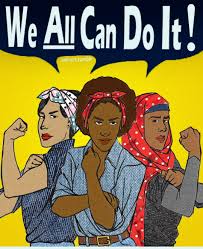
Eurocentric Feminist
What were African women fighting for before the 1950’s, before Europeans coined a term to articulate their specific Eurocentric struggle within the cultural borders of European social-cultural milieu?
Was the struggle for inclusion in Angola and Ethiopia in the 15th century not a women’s rights cause? What about in Ancient Egypt? To assume, by emotional attachment to the colonizers language,
that feminism and women’s justice is the same is to assume that Jewish self-determination equals Zionism. We need to deconstruct feminism from its global linguistic imposition and evaluate its paradigms, contrasting them against communal cultures quest for gender harmony and justice.
In the African paradigm (sometimes mistakenly called African feminism) we see how male inclusion is central, how biological determination is factored in, and how spiritual components merge together. It’s ethical root is on concepts such as Maat, not individualism.
Feminism rotates in the west and is exported to infect, and attach themselves to the broader Woman’s struggle for justice and equality in a male dominated world. However as a paradigm is diabolically anti-African anti-human
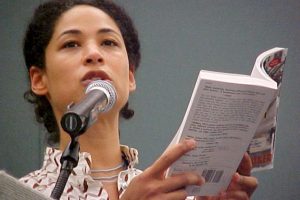
Rebeca Walker
neologism emerging out of the Eurocentric reactionary women’s movement in the 50’s. To collapse feminism and women’s rights is a fundamental linguistic flaw as the two concepts articulate completely different social realities. It is therefore inadequate to use the term feminism and apply this loaded word to the gender issues of Africa. The one commonality in all African cultures is the de-emphasis on individuality and the emphasis on community, the priority of family and creating new life. The feminist is in agreement with everything that breaks the family unit and inhibits procreation. Therefore, the African woman should never seek to locate her liberation within the Eurocentric boundaries of feminism. Within the broader African philosophy, the higher focus is balance over “tick for tack” equality. The feminist equality implies “what men can do; women can do to” as distinct from the African question of “right and wrong.” “ownership of their sexuality, to flaunt immorality. “This shows the flawed paradigm which is found in many aspects of Eurocentrism, where objectives are disconnected from spiritual and biological harmony.
The forms of African women’s rights emerging in various parts of the continent do not grow out of individualism within the context of industrial societies, as did Western feminism. In the West, economic and social trends historically pushed women into more active roles in the economy, and Western feminism has focused on women’s struggle for control over reproduction and sexuality. However, African women have had a different experience. African debates do not focus on theoretical questions, the female body, or sexual identity. African feminism is distinctly heterosexual, supportive of motherhood, and focused on issues of
“bread, butter, culture, and power.”[2]
Feminism has betrayed an entire generation of women into childlessness. It is devastating–Rebecca Walker
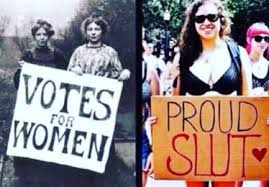
Women’s Rights?
Women’s rights responses to the injustice against women but seeks solutions within the cultural/biological context, thus it does not ignore or try to deny the biological design of women and men. Certain terms like “Equal rights” have floated around in popular culture for so long that they evade interrogation. Men and women share many roles but some roles have different gender priority, some are exclusive to women (child birth for example.) So if men do not give birth how can the “rights of the women” equally apply to men. Men have to go to war by default, women do not. And while women should have equal access to education, but not to war, not being held responsible for direct conflict. Because the woman gives birth to a nation and such a key to continuing civilization has no place being exposed to the ugliest side of human conflict. An African man does not need his African woman, mother, sister, wife coming home in a body bag in pieces. In the Islamic tradition women, the elderly and children cannot be targeted as a matter of human ethics. An in ancient African societies we see woman traditionally not being engaged in direct conflict, especially when able bodies men are available. While we can agree on commonalities in the struggle for empowering of women we have to also realize in a diverse ethnic-cultural world not every item relevant to women in the west can be transplanted into Africa, Asia or the Middle East.
A central theme in Africa idealism is the quest for harmony and justice. Justice trumps equality every time. And we need clarity on these issues to avoid liberal pitfalls. Both male and female live inside communities, not individual cells, and communities build nations-not individuals. The female energy creates a different world to the world men create. All of this violence we see is partly because of a gender imbalance (Coni and Ms.. Clinton you are excused from this example). There is a myth going around that women’s rights /justice is a woman only affair. No that is feminism. Women have agency, but it is a man’s problem as well, especially men are 1 out of 2 of the agents of female oppression. <See Feminism article>
ABORTION
The day a Mother hates what is in her womb is the first day in the death of humanity– ‘Alik Shahadah
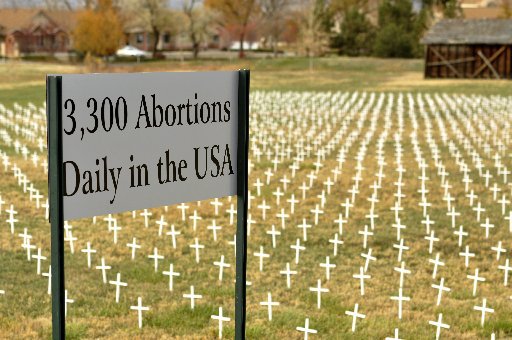
Abortion is Murder
African world views, rituals, art, language and works of wisdom celebrated the complementary relationship between the male and the female. Everything in African cultures from Ethiopia to Congo respect to the centrality of life and pro-life systems (systems that promote life). The harvest, the coming of the rains, the pouring of libation to the ancestors all speaks to the continuity of the life processes.
According to Dr. Molefi Kete Asante; professor at Temple University, the overall African philosophy is that life and the reproduction of life sit at the core of human society. Men and women have children who ritualize their parents and ancestors. Individualistic societies selfishly places emphasis on personal rights , called “freedom of choice”, over the rights of the unborn, or the community. Choice begins with birth control and using a condom. Not after the fun is finished and a new life has started. It is far more responsible and humane to teach morals than deal with the consequences of a immoral society.
And at the core of this abortion dilemma is again the ugly issue a racial disparity. In the U.S., with African American women five times more likely than non-Hispanic white women to have abortions. Planned Parenthood is notoriously famous for, among many things, being willing to accept donations for the explicit and sole purpose of aborting African-American babies. The Prenatal Nondiscrimination Act (currently in debate) would make it illegal to solicit or accept funds for sex or race selection abortions.
There are situations (rape, incest, severe deformity, health risk) where abortion is necessary. But abortion in Western societies with its over sexualized conduct is more of a birth control, which is used the last resort after a irresponsible night of lustful pleasure. Why should the life in a woman’s womb be destroyed because of low maturity or lack of sexual control between consenting adults?

It is against your soul
The minute sperm meets egg a process starts, which has one destiny. That destiny is guided by forces outside of our jurisdiction – and that destiny is life. And between Islam, Ifa, Zulu, Ethiopian Orthodox request people respect their bodies and practice marriage. Thus reducing the risk of unplanned pregnancies that cannot be sustained. The mental consequences of abortion are destructive to the woman. No volume of feminism or counseling ever allows a woman to forgive herself after an abortion. They suffer in silence in a world that said it was okay. However, no volume of okay turns an injustice into a justice. The innate mechanism of a woman’s biological design were created to sustain life. Abortion is at odds with this innate design and the creates a spiritual void and pain a woman never truly overcomes.
POLYGAMY (Polygyny) IN AFRICA
Polygamy has always been a feature of the world. In Africa polygamy expressed itself in the Jewish, Islamic and other native traditions. In all systems there were strict laws which protected the woman’s position in this traditional African system. Polygamy became taboo with Colonialism due to the conflict with inheritance in large families.
the social-economic threat caused by increased African populations and the Eurocentric Christian values.
BIBLE AND POLYGAMY

No Problem in the Bible
Very little in the Bible prohibits polygyny, and it is more an taboo is Western culture, but not in Christian theology as believed by many African Christians. The New Testament does not specifically address the morality of polygamy. (1 Timothy), however, states that certain Church leaders should have but one wife: “A ”bishop” then must be blameless, the husband of one wife, vigilant, sober, of good behavior, given to hospitality, apt to teach” (chapter 3, verse 2; see also verse 12 regarding deacons having only one wife). Similar counsel is repeated in the first chapter of the Epistle of Titus; however, the redactor of 1 Corinthians (chapter 7, verse 2) writes, “Nevertheless, to avoid fornication, let ”every” man have his own wife, and let ”every” woman have her own husband.” In modern times some Roman Catholic theologians have argued that polygamy, though not ideal, can be a legitimate form of Christian marriage in certain regions, in particular Africa.
POLYGAMY TODAY
However today polygamy is still a reality and is becoming an option in the African Diaspora in response to a social dilemma. Polygamy within the framework of law and balance is a viable aspect of African family systems which is exited from Kemet to Sokoto.
Perception of African self has been so given to us by the “other” that it is hard to distinguish what is indigenous intelligence and what is a product of mental conditioning because of the European dynamic. There is a great confusion around modernity with progress and development and too often Westernization or more specific Europeanization is collapses into modernity. African people must objectively re-examine structures that were the backbone of their historical development in an attempt to successful engage in modernity.
Outside of the Western paradigms, all aspects of Africa must be placed on the table of development; critically examined, modified, deleted or enhanced with respect to the African cultural continuum.
GENETICS AND POLYGAMY ARGUMENT
In the event of a global holocaust the only system which would favor re-populating human kind with sustainable diversity would be if the sex-ration was 1 man to multiply females, the 1:1 ration could not re-populate humanity. Throughout human history, relatively few men seem to have had a greater input into the gene pool than the rest, suggests a study of variations in DNA. Tens of thousands of years of polygamy has left a mark on our genomes that is a signature that small numbers of males must have mated with lots of females. Over time, such a pattern will spawn more genetic differences on the X chromosome than other chromosomes. This is because women have two copies of the X, while men only one. In other words, the diversity arises because some men don’t get to pass on their genes, while most women do.”Humans are considered to be mildly polygynous and we descend from primates that are polygynous,” says Michael Hammer, a population geneticist at the University of Arizona in Tucson.
Polygyny refers to the practice of males mating with multiple females, and its most common form in humans is polygamy or multiple marriages.
To find our hidden genetic history, Hammer and his colleagues sequenced DNA from 90 people belonging to six groups: Melanesians, Basques, Han Chinese, as well as three African cultures: Mandenka, Biaka and San.
http://www.newscientist.com/article/dn14817-polygamy-left-its-mark-on-the-human-genome.html
President Bashir of Sudan stated that the undeniable relationship between development and population increase (as clear with China and India) and openly encourages polygamy to allow increased development. This seems contrary to Western advisors who encourage Africans to decrease their populations, but ironically these same experts argue for an increase in Europe’s population and are deeply concerned with the social-economic consequences of decreasing birth rates in the Western world. Ali Mazrui states: Culture provides lenses of perception, the way of looking at reality, a world view; culture provides standards of evaluation; what is good and what is evil; what is legitimate and what is illegitimate are rooted in criteria provided by culture. Culture conditions motivations; what motivates individuals to act or refrain from acting, what inspires individuals to perform well or to really exert themselves, is partly inspired by cultural factors. Culture is the medium of communication; the communicative aspects of culture range from language in the literal sense to physical gestures and modes of dress. Culture provides a basis of stratification, a pecking order in society. Status, rank and class are partly the outcome of a cultural order.
Some African advocates of polygamy see it as an aspect of a needed paradigm shift where Africans revisit their traditional practices which worked for thousands of years. Thus mentally throwing of colonial imposed taboos.
DOWRY CRISIS (South Africa)
The lobola (marriage dowry / Mahr (Islam)) traditionally in Southern African culture was a stimulus for marriage.
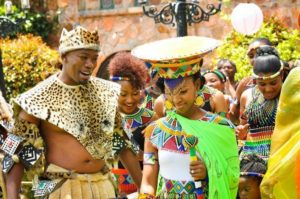
Traditional Zulu Wedding
The single-mother economic dilemma was curbed by this dowry tradition. Despite feminist anti-human opinion Africans developed these traditions with the highest intelligence which functioned to stabilize and create justice in societies. We now see the erosion of these traditions has caused endemic immorality and decadence. In other African cultures having a daughter with child outside of wedlock is shameful. A family’s honor would be in tatters.It retains cultural traditions and created economic viability in many ways between families and therefore communities. However the issue of the lobola is now becoming counterproductive and actually doing more to cause a national decrease in weddings in African communities. The exorbitant figures requested by families for daughters is creating a social, cultural and health crisis. In Traditional times the virginity rituals meant a girl only lost her virginity in marriage, so they was a serious incentive for suitors to seek marriage. Virginity also was a demand by the man’s family and the more virtue a girl the higher the dowry. Now this created a social balance where a woman had incentive to protect her virginity. If a man violated this he had to pay damages as getting a woman pregnant dishonored her family and lowered her dowry.
The labolla created funds for the marriage and the family who had raised her, it was a gift to say thank you for raising such a respectable lady – not a purchase of a woman as property. With the advent of a sexual-liberal immoral society the entire sex after marriage has been vulgarly abandon in favor of promiscuity. But still the labolla (dowry) remains but failing in its cultural role, and worst feeding the crisis.
From the new African man’s perspective it seems redundant that a man should pay R40,000 for a woman who has had over 20 boyfriends and 2 children and only 23 years old. Where is the incentive for the man to marry when he can continue to sleep around and father children? The statics show that in South Africa, Africans like African-Americans, are majority single mothers with the lowest marriage rate for any race group. Not only is it a moral and cultural issue it is also a health issue because the lack of commitment to marriage also increases the chances of HIV. The lack of commitment to marriage also is a gateway to immorality as women and men explore sex more frequently due to the burdens of seeking marriage. Labolla was designed to protect the culture. Now it is being used to prevent it by capitalist greed inserting itself at the expense of the next generation.
The solution is for a re-evaluation of the dowry in monetary terms. Because the dowry is a serious aspect of African culture and it does function when used properly. However the priority should be to create happy marriages. So the demand for high dowry should be secondary to the demand to make sure a couple marry and live clean lives in commitment.
Pressure to give birth | In some parts of South Africa, families do not allow a marriage unless the woman first proves she can give birth. Once she conceives the marriage is approved. Not everything in culture is good, because what is now happening is men are using this excuse to have pre-maritial sex without any intention of marrying the woman. It also creates a culture where a woman’s worth is exclusively in her ability to give birth. Women are therefore under social pressure to have a child, even without a husband or financial means.
DAMAGES
The Zulu term for paying for bringing ‘disgrace’ to a family is “nhlawulo” ( also -ntlawulo yesisu ) in these times usually is supposed to apply if a man is the first to impregnate a woman/ Since he has disgraced the family, and affected her future and her ability to secure a full dowry (since she is no longer a virgin, and “burdened” with a child. But if its a womans second child it is not required to pay anything as she was a willing participant. It makes no sense for a woman who is 34 years old with three children to be discussing damages when she gets pregnant for another man. If he wants to fair enough. That is not the intended purpose of Nhlawlo but a modern money making hustle.
DYING TRADITIONS
All across Africa, traditional cultural weddings are dying out with the influx and normalization of the so-called White Western wedding.
The sample below is to show the richness and importance of continuing African weddings and halting the culturally destructive practice of aping the traditions of the West.
The union of man and woman is a celebration of the natural continuity of life. Marriage is the only known incubator for the raising of balanced socially functional children. However, in all the communities the bride plays a very special role and is treated with respect because she is a link between the unborn and the ancestors. A bride might eventually bear a very powerful child. In some areas of East Africa the grooms family would even move to the bride’s village and set up a whole new house there.
- Ethiopia
In Ethiopia the Karo people enhance a young brides beauty by tattooing her abdomen with different symbols. Amhara people: most marriages are negotiated by the two families, with a civil ceremony sealing the contract. A priest may be present. Divorce is allowed and must also be negotiated. There is also a “temporary marriage,” by oral contract before witnesses.
The woman is paid housekeeper’s wages, and is not eligible for inheritance, but children of the marriage are legally recognized and qualify for inheritance. Priests may marry but not eligible for divorce or remarriage. The Wedding procedure starts with the grooms side sending a representative who request the marriage between the parties. Then an appointment is given and a verdict on the marriage is given. Before the wedding the Dowry ( ጧሎሽ) is given as agreed. On the wedding day the groom and three or four “bestmen” ( ሚዜ) go to the wifes house. At the house the ladies family and friends ceremonially block the entrance to the house. The associates must sing strongly and force their way into the house. The first best-man holds perfume and sprays everywhere inside the house. The brides family sing songs such as ( እግር ስመህ ግባ). Christian marriages, mainly in Tigray and Amhara regions, are often arranged by the parents of the bride and groom with a great deal of negotiation. According to tradition and culture the bride must be virgin when the marriage takes place. Because the bride virginity is highly valued and pride in Christian marriage, with the whole family being shamed if the bride is not virgin at marriage.
-
- Ghana
-
The Ghanaian marriage ceremony is a traditional ceremony where the groom accompanied by his family formally asks for the bride’s hand in marriage in the presence of family, friends and well wishers. The traditional ceremony is a necessary common rite of marriage for all Ghanaian couples. In Ghana today, some couples perform this alone as a marriage ceremony, however, most couples also go on to perform the western wedding in a church in addition to the traditional marriage ceremony.
The marriage ceremony starts with the “knocking” (kokooko) on the door ceremony. In the knocking ceremony the groom, along with his father and some elder members of the family visits the brides house to announce their marriage intentions. Often times this ceremony is performed a week or two before the actual marriage ceremony. The knocking (“kookoo ko”) is derived from the Ghanaian tradition of knocking on at the entrance of a house before entering as a visitor. For the knocking ceremony the groom’s family brings along two bottles on alcoholic drinks, some money and cola to the house to present to the brides family. In the past, and to date, the drinks are used to pour libation. (Libation is a traditional form of prayer to the ancestral spirits and God). When the drinks are presented, a designated spokesman from the grooms delegation formally asks the brides family for permission to enter the house and announce their intentions. If the drinks are accepted then it means permission has been granted to the visitors to state their intentions. The spokes person will then explain in the most lyrical language, that the groom, has seen a “beautiful flower” in the house of the brides family that he desires and would like to “uproot” that flower, not steal, from its keeper, hence they are here to ask for the brides hand in marriage and inquire about what is required in order to make that flower his own.
-
Once the intentions are announced, the brides family may ask the groom and his family to come back at a set later date during which the brides family will investigate the grooms family background further to see :
-
a) if the family has no chronic illness or genetic disabilities in the family
b) if family has a good reputation, that is no immediate family member such as a sibling, an aunt or uncle is known to be a thief, prostitute or murderer
c) if the groom has no illegitimate children or has another marriage elsewhere etc.
d) if the groom is of good character and well matched to the brideOften times the background inquiry is made when the brides family knows nothing or knows little of the groom’s family. If they are satisfied and pleased with what they find out, they will send a list of things to the groom and his family to provide before they can marry the bride.
On the set date the groom and his family, along with invited guests show up early at the brides house. The grooms family sits on one side, while the other brides family sits on the other side facing each other. Elders from both family begin the marriage ceremony with a prayer and introductions. The grooms family begins by presenting the dowry and all the other items on the list one, by one. At each stage, the items are checked to make sure everything asked on the list is being presented. Negotiation is possible if the grooms family feels too much is being asked of them. The bride is not present in all of these proceedings. The groom, although present, does speak in all of these proceedings as all the speaking and negotiation is done on his behalf by the designated spokes person from his family.
-
Once everything has presented to the brides family, the bride would then be brought into the gathering. Because a decoy can be used to “tease” the groom, the groom is asked to verify if this is indeed his bride. Once he confirms, she is asked three times by her father if she agrees to marrying the groom. She is asked if they should accept the dowry and accompanying gifts from the grooms family. When she agrees, then the groom will slide the ring onto her fingers and kiss and hug her. An elder presents a bible to both the groom and bride as a symbol of how important religion should be in their married life. Prayers are said and blessings are given. The married couple is now congratulated and each elder in the room offers marriage advice to the new couple. Once all of this is done there is a huge celebration reception where food & drinks are served. There is lots of music and dancing till nightfall.
- Kenya
The Massai people of Kenya grow up with children of their own age and normally form relationships with these people. However, in marriage women are given to a man they do not know who is much older then themselves. The bride packs all her belongings and is dressed in her finest jewelry. At the marriage ceremony the father of the bride spits on the brides head and breasts as a blessing and then she leaves with her husband walking to her new home she never looks back fearing that she will turn to stone. This can be a very sad experience for the bride, who is 13-16 years old and may walk a long way to get to her new house. In order to ward off bad luck sometimes the women of the grooms family will even insult the bride.
The Swahili of Kenya bathe brides in sandalwood oils and tattoo henna designs on her limbs. A women elder, or Somo, gives instructions to the bride on how to please her husband. Sometimes the Somo will even hide under the bed in case there are any problems! In a small city called Lamu, situated outside the coast of Kenya, lives a group of Swahili Muslims. In this community the weddings can be going on for a whole week with a lot of festivities consisted of singing, dancing and food. But these festivities are celebrated separate for men and women. After the “real” wedding the bride is shown in public, with a so-called, kupamba. This ceremony is always taking place the evening after the wedding and it is the grand finale of the passage rite, in which the young bride enters the married women’s world. Today this particularly ceremony has become more in focus than some years ago when the kuinngia ndani (the entry) was the main attraction. It is a ceremony when the groom is walking down the streets to meet his bride and then complete first phase of the wedding. The kupamba has become more popular of various reasons, but the main reason is the fact that it is an opportunity for women to meet and have a good time without their husbands. When the enter this party they all take off their black veils and underneath they have beautiful dresses and wonderful haircuts etc. Another problem with this kupamba is that many families almost ruin themselves just to be able to have this party for their daughters. The musicians and food cost plenty of money. Sometimes the mother of the bride, female relatives and neighbours have to help out with the food and devote themselves to make the food some days before the ceremony.
In another area of Kenya the main feature of the wedding is the kupamba, which happens the night after the wedding, it is basically a display of the bride. It is very popular because it is a party just for the women, and when they enter the party they are able to take off their large veils and show off elaborate hairstyles and dresses. The party can almost become a competition because it is believed that if a women has a good husband he will get her beautiful jewelry and clothes.
For the Samburu people marriage is a unique series of elaborate ritual. Great importance is given to the preparation of gifts by the bridegroom (two goatskins, two copper earrings, a container for milk, a sheep) and of gifts for the ceremony. The marriage is concluded when a bull enters a hut guarded by the bride’s mother, and is killed.
- Namibia
- The Himba people of Namibia kidnap a bride before the ceremony and dress her in a leather marriage headdress. After the ceremony she is brought into the house where the family tells her what her responsibilities will be as the wife and then anoint her with butterfat from cows. This shows that she has been accepted into the family.
- Niger
- The Wodabee of Niger court their cousins for marriage. The male cousins wear powerful amulets which are supposed to heighten their attractiveness to the girl. Wodaabe are often polygamous Marriages are either arranged by parents when the couple are infants (called “koogal”), or they can be because of love and attraction (called “teegal”). The family of the groom gives a bride price to the bride’s family and then they are married. A bride stays with her husband until she becomes pregnant after which she returns to her mother’s home, where she will remain for the next three to four years. She will deliver the baby at her mother’s home and then she becomes a boofeydo which literally means, “someone who has committed an error.” During the time of being a boofeydo, she is not permitted to see or speak with her husband. It is a cultural sin for him to express any interest in her or the newborn child. After two to three years, her mother will release her to visit her husband, but she still will not be permitted to live with him or bring the child with her until the woman’s mother can purchase everything that is needed for her home. Once these items are purchased, she is allowed to go and live with her husband, taking her child with her.
-
Nigeria
- In Nigeria, in west Africa, a husband never uses his wife’s name. Only relatives and the women’s own children are allowed to use the name her father gave her and it is only unmarried girls who may be called by name. So to learn a married woman’s name, one have to ask her husband the name of her father, and use that. When a couple are about to get married in this community people sing to inform that the bride is bound and is brought to the young man. Singing and dancing are two very important fragments in the Nigerian weddings and they are always combined with a big feast. The bride is keept in a special hut where she stays till he is let inside. But first he has to give chicken and tobacco to the guest and when all have got this the bride groom is let inside the brides’s hut and the marrige is announced. Next day a goat is killed for the bride and the blood is poured over the threshold of the hut. and the bride’s mother asks her daughter if she is pleased with the groom. After this the dancing starts again and the drums call make visitors come and they give the bride a penny to see her face and another penny for camwood to rub her body. In Nigeria marriage is seen as a bound between blood relations and are considered as very important.
Today the traditional African weddings are dying and are becoming more like the Western-style church weddings. This has more or less become norm in Nigeria today. Even though people are born and raised in Nigeria they are still likely to have a Western-style white wedding at the expense of a proper African wedding. The reason behind this can be the Nigerian Church and the Eurocentric missionaries who influenced the Church and the African groups. But there are some in Nigeria who still live after the old traditions and are preforming the traditional wedding ceremonies.
The first step in the wedding process is the first meeting with the both involving families where they investigate each other. At this occasion they groom’s family donate some gifts to the bride’s family, consisting mostly of cattles, yams or money. After this the ceremony the bride comes to live with the groom and his family, and if that turns out to work out a wedding feast is held. After the ceremonial feast the bride is considered married to the groom and his family.
The bride should be a virgin before the actual wedding, but today there are exceptions. Pregnancy outside of marriage is considered shameful. Polygamy marriages exist and are legal in Nigeria, but again the Christian religion forbids it. Polygamy marriages have though become less common in today’s Nigeria. This is due to the fact that a man in such a marriage is responsible to provide for his family and to provide for a family is expensive. Because of the economical situation in Nigeria it has become less common with polygamy marriages.
-
South Africa
- See Labolla crisis
Thousands of Zulu virgins converge at the Enyokeni Zulu Royal Palace in September every year to celebrate the Umkhosi woMhlanga (Reed Dance Festival). The Reed dance is an activity that promotes purity among virgin girls and respect for young women. The festival is part of the annual festivities on the calendar of the Zulu nation. During the Reed dance the virgins fetch the reeds from the river and bring them to the palace for the royal king, King Goodwill Zwelithini to inspect.
- During the Reed dance the virgins fetch the reeds from the river and bring them to the palace for the royal king, King Goodwill Zwelithini to inspect.It was during this festival that the Zulu King chose his youngest wife. To many, this ceremony helps to preserve the custom of keeping girls as virgins until they get married. An in a nation ravaged by loose morals and HIV/AIDS it is a cultural buffer which holds back loose morality and promiscuity, thus giving women power over their bodies and thus self-respect and dignity.
-
TSWANA
Tswana Marriage Customs The Tswana (Setswana) speaking people of Botswana and South Africa have a marriage ceremony which begins with a delegation from the groom’s side approaching the bride’s side in an elaborate ceremony which takes place early in the morning. The delegation which comprise of an even number of men and women enter the compound of the bride’s family. The women carry part of the dowry or lobolla on their heads and proceed into the compound crawling on their knees. The male delegation approaches one of the several gathers of men which are representing the bride. These men are in one or more groups at the fire. There is a ceremonial air of tension. When the party at the fire greet the groom’s delegation they only reply with a rubble acknowledgment. They deliver gifts such as whisky and also a sheep which is to be slaughtered for the celebration to follow. The women wait on their knees and the bride’s party calls them “enemies” and ceremonially treat them with a slight contempt because they are there to take a member of their family away. -
Lobolla:
-
The lobolla consist of blankets (always), undergarments, and other useful things which is delivered and inspected by the bride’s representatives. By the fire the men discuss at length the lobolla and negotiate and sing praises of the husband to be. In modern times money replaces cows and R6000 (South African Rand) may represent one cow. Thus a typical dowry could be 10 cows, i.e. R60,000 After the negotiations are completed the entire delegation enters the house and is accommodated with refreshments. All parties return to their home and return later in the day for a lavish celebration and a meal. The bride’s parties are expected to give a sheep as a return offering, but in modern times for practicality sometimes money is used to represent this gift. In some Tswana culture the man purchases a bed which is pre-delivered to the bride’s family house. He must remain there until he can provide a house for his new wife. He is expected everyday to vacate the property at 03:00 in the morning and avoid being seen by any of his in-laws. This is said to encourage him to provide a new home for his new family.
-
ZULU WEDDING |
- The Zulu wedding takes many shapes and forms. Usually the bride changes more than three times on her wedding day, showing off to her in-laws how beautiful she is in different colors. Although it is not a Zulu custom for the bride to wear the white wedding gown, nowadays brides prefer to do so. The wedding takes place at the church, and during this time the bride is dressed in white. After church the wedding occurs at the bridegroom’s home. The bride changes into traditional outfit. During the traditional wedding the parties from the bride and the groom’s side compete through Zulu dance and songs. During this ceremony the family of the groom slaughters a cow to show that they accept the bride in their home. The bride puts money inside the stomach of the cow while the crowd looks on. This is a sign that she is now part of the family. The wedding ceremony ends with the bride giving gifts in the form of blankets to her new family, including the extended family. This tradition is called ukwaba. Even the long-deceased family members receive gifts and are represented by the living ones. The family cover themselves with the blankets in an open area where everybody will see. The spectators ululate, sing, and dance for the family.
Note: In South Africa if a man gets a woman pregnant outside of wedlock he is required to pay damages (a fine to the paents) for dishonored the family.
- Somalia

- Somali marriage laws are practically Muslim marriage laws, with a difference; it is this difference that makes them so interesting to study. A man may have four wives, with all the trouble he deserves in consequence thrown in. He may become engaged to a girl before she is born by making an arrangement with her ” prospective “-for want of a better word-parents. The engagement in any case is always arranged between the girl’s parents or guardians, and is clinched by a small present from the man to them as a token of finality. This token, which may consist of a horse or even any small personal possession of the man’s, once accepted makes the engagement binding for all time. If broken by either party something like a breach of promise case is the result. Any time before the marriage, property (generally in the shape of stock) is paid by the suitor to the parents as the purchase price of his bride. The value of this property varies among different tribes and for different women. If before marriage a girl dies, her relations must return the purchase price paid, which is called yarad. Should the man die his next of kin may marry the girl on making a small further payment. Should she refuse this alliance another must be found to take her place, or the yarad be returned to the deceased’s estate. If everything is arranged satisfactorily and the marriage be consummated, a substantial proportion (known as dibad) of the yarad is returned to the man by his wife’s people. The marriage is generally celebrated by a Kathi or Sheikh, and at the ceremony the amount of dowry-or mehr, as it is called here-to be settled on the wife by her husband is recorded. The mehr may consist of anything-generally stock-and need not be paid at the time, but it is a very important matter for the woman that it be clearly defined. Should she be divorced her husband must hand to her the mehr agreed on at the marriage ceremony. Should he die she has first claim on his estate for her settlement, which is quite apart from any subsequent share of the estate she is entitled to as deceased’s wife. However, should she refuse to marry her deceased husband’s next of kin or a man of his tribe chosen by his people, she forfeits all rights to both her mehr and share of the estate. This is roughly the basis of Somali marriage laws. .
- Sudan
- The Neur people of southern Sudan the groom must pay 20-40 cattle, the marriage is completed only after the wife has born 2 children. If the wife only bears one child and the husband asks for a divorce he can also ask for either the return of the cattle or the first child. Divorce therefore is very difficult. Another interesting fact is that if a husband dies then the husbands family must provide a brother to the widow and any children born to the brother are considered the deceased’s children.
- Traditional Wolof wedding ceremonies, the parents of the groom-to-be sends elders to the girl’s parents with kola nuts and money to ask for her hand in marriage. The girl’s parents consult their daughter and either consent to or reject the proposal. If accepted, the parents of the bride to be distribute the kola nuts among the family and neighbours. This distribution is an informal way of announcing the impending wedding. In more traditional practices, the groom to be’s family paid the girl’s bride price in the form of money. This tradition, has been modernized and dowry is paid in money, cars or even houses. After the completion of the groom’s obligations, the two families set a wedding day. Before the wedding day, the groom’s family gives a party to welcome their daughter-in-law and to prepare her to live with her new family. The imam and elders advise the groom with the presence of the some representatives of the bride’s parents. Weddings traditionally take place at the groom’s home. Parents receive guests with food and drink (but not alcohol), while guests bring gifts of money, rice, drinks, ships, sugar, or spices. After the ceremony people feast and dance with guests hiring a griot (praise-singer) and giving further gifts to the groom’s parents. The girl moves to the husband’s (or his parent’s) home or compound, bringing utensils for cooking which she buys with the money from the bride price.
- The marriage customs of the Shona people of Zimbabwe is a process of several months. Roora, the same as South Africa’s lobola is paid in a similar fashion to South Africa and Botswana. The bride however, decides when to go to her husband. She goes at night, with her female relatives escorting her. The day she chooses is a surprise to the groom. She is covered in white from head to toe so that no one can see her. As she walks into the village, his family starts dancing and ululating. They also begin to prepare an impromptu party. The groom is found and told that his bride has arrived. The surprise is to see how the groom’s family reacts to an emergency. The bride, covered, walks through the whole village, taking her time. The villagers, all related to the groom, encourage her to keep on walking. They flatter her. They throw money at her feet and they sing songs about how happy they are that their people will live on because the bride has agreed to have babies for their son. She is eventually escorted into her mother in law’s home where she is encouraged to take off her veil with gifts and pleadings. That is when the family gets to see their daughter in law for the first time. A big party of dancing, and drinking begins all night long into the morning.
- African-American
- Many African Americans choose to include their heritage in their special day. There are countless ways to honor your ancestors during your wedding ceremony and reception. You may also choose to add ethnic touches to the bridal shower and wedding party gifts. Wedding customs and rituals vary from region to region in Africa. Yet there are some customs that have a common thread in African values, views, and experiences which provide uniformity. In general, African marriages celebrate the uniting of two families. Introducing aspects of your culture during the wedding ceremony and/or reception is a way of celebrating African heritage and ancestry.
- Jumping the broom This is a well-known tradition whose origin is up for debate. During the slavery era, since African slaves were forbidden to marry in America, they would make a public declaration of their love and commitment by jumping over a broom to the beat of drums. Today, this ritual’s significance is agreed upon to be a symbol for the start of the couple making a home together. It has become very popular for African-American couples to “Jump the broom” at the conclusion of their wedding ceremony. The broom, often handmade and beautifully decorated, can be displayed in the couple’s home after the wedding. See our selection of Wedding Brooms.
References
| ↑1 | https://www.youtube.com/watch?v=atqB_7bzNFc |
|---|






